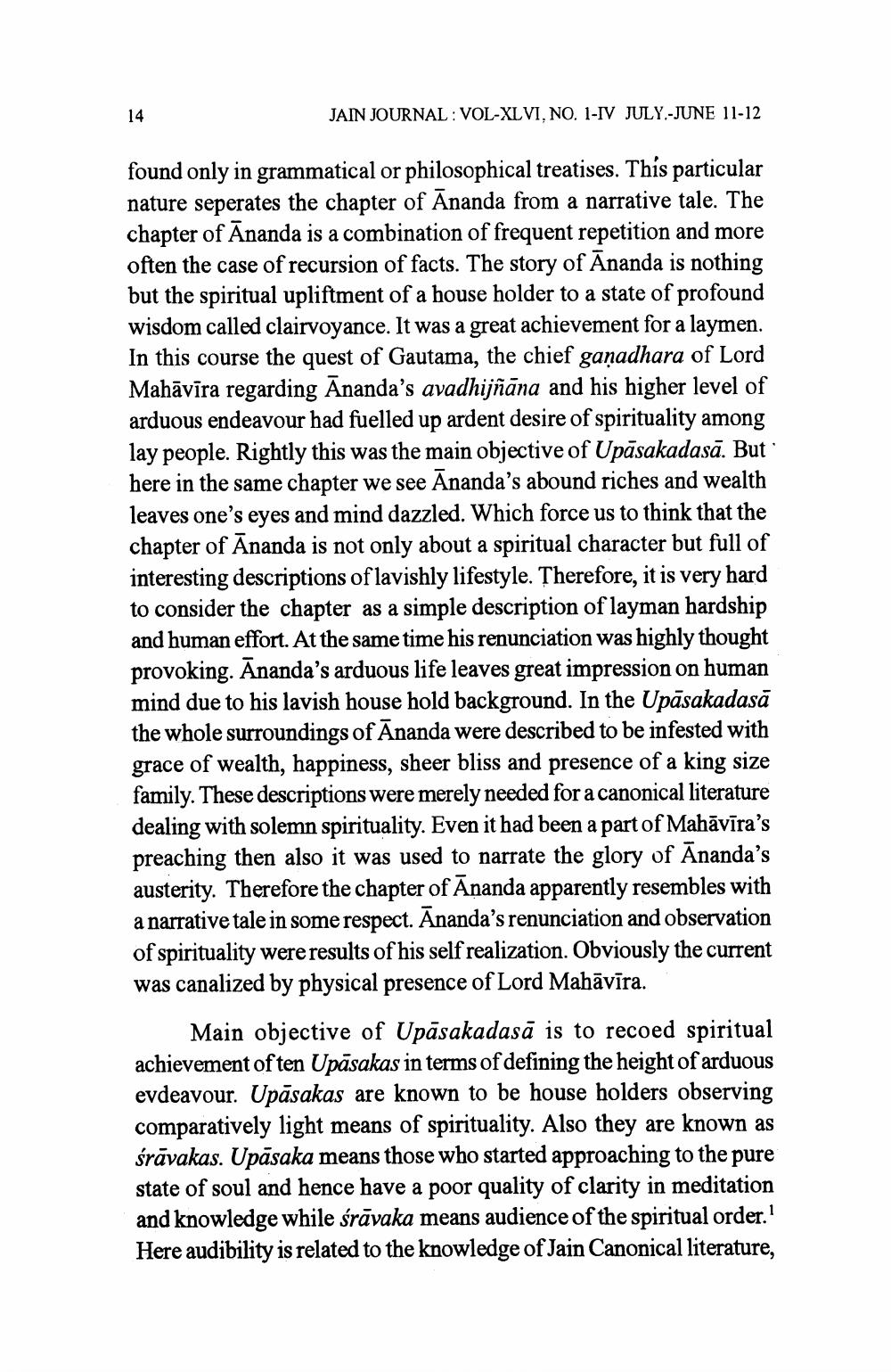________________
14
JAIN JOURNAL: VOL-XLVI, NO. 1-IV JULY-JUNE 11-12
found only in grammatical or philosophical treatises. This particular nature seperates the chapter of Ananda from a narrative tale. The chapter of Ananda is a combination of frequent repetition and more often the case of recursion of facts. The story of Ānanda is nothing but the spiritual upliftment of a house holder to a state of profound wisdom called clairvoyance. It was a great achievement for a laymen. In this course the quest of Gautama, the chief gañadhara of Lord Mahāvīra regarding Ananda's avadhijñāna and his higher level of arduous endeavour had fuelled up ardent desire of spirituality among lay people. Rightly this was the main objective of Upāsakadasā. But here in the same chapter we see Ananda's abound riches and wealth leaves one's eyes and mind dazzled. Which force us to think that the chapter of Ānanda is not only about a spiritual character but full of interesting descriptions of lavishly lifestyle. Therefore, it is very hard to consider the chapter as a simple description of layman hardship and human effort. At the same time his renunciation was highly thought provoking. Ananda's arduous life leaves great impression on human mind due to his lavish house hold background. In the Upāsakadasā the whole surroundings of Ananda were described to be infested with grace of wealth, happiness, sheer bliss and presence of a king size family. These descriptions were merely needed for a canonical literature dealing with solemn spirituality. Even it had been a part of Mahāvīra's preaching then also it was used to narrate the glory of Ananda's austerity. Therefore the chapter of Ananda apparently resembles with a narrative tale in some respect. Ananda’s renunciation and observation of spirituality were results of his self realization. Obviously the current was canalized by physical presence of Lord Mahāvīra.
Main objective of Upāsakadasā is to recoed spiritual achievement of ten Upāsakas in terms of defining the height of arduous evdeavour. Upāsakas are known to be house holders observing comparatively light means of spirituality. Also they are known as śrāvakas. Upāsaka means those who started approaching to the pure state of soul and hence have a poor quality of clarity in meditation and knowledge while śrāvaka means audience of the spiritual order.' Here audibility is related to the knowledge of Jain Canonical literature,




